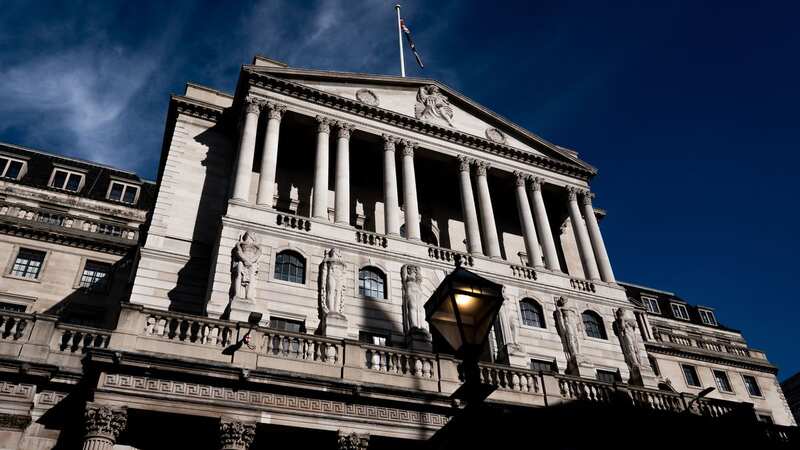Think tank suggests Bank of England should have power to cut rates into negative

A report suggests that the Bank of England should be given the power to cut interest rates into negative territory and aim for a higher inflation target. This would help future-proof the nation's finances in case of further crises.
The Resolution Foundation has highlighted that economic crises over the past 15 years have caused the UK's debt to GDP ratio to skyrocket from 36% in 2007 to around 100%. This is the largest peace-time increase in more than 300 years.
The think tank warns that rising interest rates are also increasing the nation's debt bill. Each one percentage point rise in rates could add around £15 billion to government borrowing in five years' time.
In its report, titled 'Built To Last', the Resolution Foundation predicts that if rates stay high for longer and current fiscal policy plans continue, the UK's debt could rise to about 140% of economic output over the next 50 years.
The cost of servicing this debt could reach 5% of GDP, which would be its highest sustained level in over 70 years. This is more than the combined departmental budgets for energy, defence and transport.
 Teachers, civil servants and train drivers walk out in biggest strike in decade
Teachers, civil servants and train drivers walk out in biggest strike in decade
If rates fall back down due to lower growth, the pressures on debt could be even greater, according to the report.
The Resolution Foundation's research, part of The Economy 2030 Inquiry, suggests a "reset" of monetary and fiscal policy. This would give the Bank of England more room to act in a downturn and reduce the need for government support.
The report recommends that the Bank of England should be able to cut rates into negative territory, up to minus 1%, during a downturn. It also suggests increasing the inflation target to 3%.
However, the inflation target should only be increased once the current 2% goal has been met. If the UK returns to a low interest rate world, the report says.
The report also states that governments must develop fiscal policy tools for targeted support in an economic crisis, rather than more costly universal support.
James Smith, research director at the Resolution Foundation, said: "We need to reset the UK's approach to macroeconomic policy."
"The Bank of England needs greater monetary firepower, secured by enabling slightly negative interest rates and taking steps to move to a 3% inflation target if we return to an ultra-low interest rate world."
"The Government should plan now to be able to provide more targeted support in future recessions, having overspent by £35 billion on poorly targeted schemes in the recent past."
"This reset would ensure we can support the economy in bad times and fix the fiscal roof when the sun eventually arrives."
* An AI tool was used to add an extra layer to the editing process for this story. You can report any errors to [email protected]
 8 money changes coming in February including Universal Credit and passport fees
8 money changes coming in February including Universal Credit and passport fees
Read more similar news:
Comments:
comments powered by Disqus

































